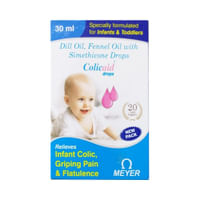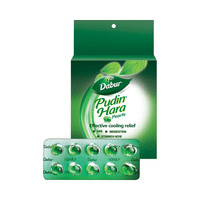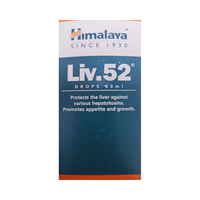Difen Plus 50mg/325mg Tablet

Rs.18.30for 1 strip(s) (10 tablets each)
food interaction for Difen Plus
alcohol interaction for Difen Plus
pregnancy interaction for Difen Plus
lactation interaction for Difen Plus
food
alcohol
pregnancy
lactation
Difen Plus 50mg/325mg Tablet is to be taken empty stomach.
None
None
CAUTION
It is unsafe to consume alcohol with Difen Plus 50mg/325mg Tablet.
UNSAFE
Difen Plus 50mg/325mg Tablet is unsafe to use during pregnancy as there is definite evidence of risk to the developing baby. However, the doctor may rarely prescribe it in some life-threatening situations if the benefits are more than the potential risks. Please consult your doctor.
CONSULT YOUR DOCTOR
Difen Plus 50mg/325mg Tablet is probably safe to use during breastfeeding. Limited human data suggests that the drug does not represent any significant risk to the baby.
SAFE IF PRESCRIBED
SALT INFORMATION FOR Difen Plus
Diclofenac(50mg)
Uses
Diclofenac is used for pain relief. It relieves pain in conditions like headache, mild migraine, muscle pain, dental pain, rheumatoid arthritis, ankylosing spondylitis, osteoarthritis, or painful menses.
How it works
Diclofenac is a non-steroidal anti-inflammatory drugs (NSAID). It works by blocking the release of certain chemical messengers that cause pain and inflammation (redness and swelling).
Common side effects
Nausea, Headache, Dizziness, Vomiting, Flatulence, Constipation, Diarrhea, Abdominal pain, Dyspepsia, Gastrointestinal bleeding, Gastrointestinal ulcer, Rash, Application site irritation, Injection site pain, Chest pain, Hypersensitivity, Angioneurotic edema, Platelet disorders, Convulsion, Visual disturbance, Ringing in ear, Colitis, Stevens-Johnson syndrome, Myocardial infarction
Pantoprazole(325mg)
Uses
Pantoprazole is used in the treatment of heartburn, gastroesophageal reflux disease (acid reflux) and peptic ulcer disease.
How it works
Pantoprazole is a proton pump inhibitor (PPI). It works by reducing the amount of acid in the stomach which in turn relieves acid-related indigestion and heartburn.
Common side effects
Diarrhea, Flatulence, Headache, Nausea, Vomiting, Dizziness, Abdominal pain, Blurred vision, Constipation, Joint pain, Injection site reaction, Edema (swelling), Dryness in mouth, Hepatitis (viral infection of liver), Decreased white blood cell count, Low blood platelets, Rash, Red spots or bumps, Fundic gland polyps, Jaundice, Systemic lupus erythematosus, Clostridium difficile associated diarrhea, Change in body weight, Increased triglyceride level in blood, Rhabdomyolysis
SUBSTITUTES FOR Difen Plus
4 Substitutes
4 Substitutes
Sorted By
 Rs. 39pay 107% more per Tablet
Rs. 39pay 107% more per Tablet Rs. 65pay 244% more per Tablet
Rs. 65pay 244% more per Tablet Rs. 69pay 266% more per Tablet
Rs. 69pay 266% more per Tablet Rs. 119pay 528% more per Tablet
Rs. 119pay 528% more per Tablet
Expert advice FOR Difen Plus
- You have been prescribed Diclofenac to relieve pain and inflammation.
- Take it with food or milk to prevent upset stomach.
- Take it as per the dose and duration prescribed by your doctor. Long term use may lead to serious complications such as stomach bleeding and kidney problems.
- It may cause dizziness, drowsiness or visual disturbances. Use caution while driving or doing anything that requires concentration.
- Avoid consuming alcohol while taking Diclofenac as it can cause excessive drowsiness and increase your risk of stomach problems.
- Inform your doctor if you have a history of heart disease or stroke.
- Your doctor may regularly monitor your kidney function, liver function and levels of blood components, if you are taking this medicine for long-term treatment.
Frequently asked questions FOR Difen Plus
Diclofenac
Q. Is Diclofenac a good painkiller?
Diclofenac is effective in relieving pain and inflammation. It is used for various sorts of pain such as sprains, strains and other injuries. It is also helpful in various types of arthritis, gout, pain and inflammation following surgery.
Q. Is Diclofenac a narcotic?
No, Diclofenac is not a narcotic. It belongs to non-steroidal anti-inflammatory drugs (NSAIDs) group of medicines.
Q. Does Diclofenac get you high?
No, Diclofenac does not get you high. It does not have an abuse potential (drug-seeking behavior) and does not cause physical or psychological dependence. However, if you do not feel well, consult your doctor.
Pantoprazole
Q. What is Pantoprazole used for?
Pantoprazole is used for the treatment of peptic ulcer disease, reflux esophagitis or gastroesophageal reflux disease (GERD). Pantoprazole prevents acidity associated with use of painkillers. It is also used to treat a disease associated with excessive acid production in the stomach known as Zollinger Ellison syndrome (ZES). It works by reducing the amount of acid made by your stomach and thus relieves your symptoms.
Q. How long does it take for Pantoprazole to work?
You should start to feel better within 2 to 3 days. It may take up to 4 weeks for Pantoprazole to work properly so you may still have some symptoms during this time.
Q. Is Pantoprazole safe?
Yes, Pantoprazole is relatively safe. Most of the people who take Pantoprazole do not get a side effect. It is advised to be taken as directed by the doctor for maximum benefits.






















